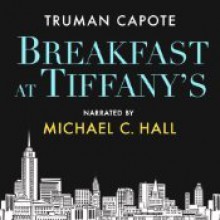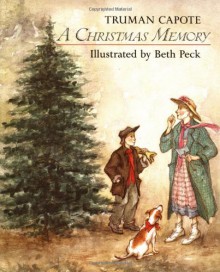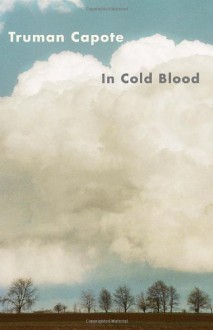
Thanks to NetGalley and Cornerstone Digital for providing me an ARC copy of this book that I freely chose to review.
I requested an early copy of this book as soon as I read what it was about. I’ve always been fascinated by books about writers and the writing process, and true crime stories have also intrigued me both professionally and personally for a long time, so this book seemed to tick all the right boxes. And I’m pleased to confirm that it does deliver.
Narrating the story of the book Harper Lee intended to write after her success with To Kill a Mockingbird —a true crime story seemingly inspired by her friend Truman Capote’s book In Cold Blood, which she helped research (and there is little doubt her contribution was key to the greatness of the book)— would guarantee a lot of attention. Most people have read (and/or watched the movie version of) To Kill a Mockingbird, an American classic, and many stories have circulated about its author, who never published another novel and avoided public attention, interviews, and homages. I can’t imagine many readers of the book who have not wondered why this was her only book. Of course, she is not the only author to have published an extremely successful book and no more (I won’t run through the list), but the more we hear about her (recent movies about Capote brought her attention as well) the more intrigued we become.
Cep’s methodology for telling the story is fascinating and by the end of the book I though she lives up to the exacting rules and standards Lee applied to her own work. She did not wish to fictionalize parts of the story (as Capote had done in writing what he dubbed his “nonfiction novel”), and she wanted to make sure people knew what was fact and what was rumour or fancy. It is worth reading the notes at the end (which go into a lot of detail about which sources Cep used for which part, including interviews, letters and articles) to get a clearer sense of the process of creating the book and researching it. She had privileged access to the original sources, managed to interview many of the people involved (those still alive), although, of course, Lee’s paper remain sealed, so there remain many unanswered questions. She could have chosen to write herself into the story (writing therefore the story of her writing the story of Lee’s abandoned book), but she doesn’t, and I felt her strategy worked well.
The book is divided into three parts: the first is dedicated to Reverend Maxwell, his life, his career, the suspicious deaths of five of his relatives, whose life insurance policies he was the main beneficiary of, the rumours of his having used voodoo, and his murder during the funeral of his stepdaughter (and suspected last victim). The second part follows the life and career of Tom Radney, who was Reverend Maxwell’s lawyer while he was alive and who went on to defend the man who killed him. “Big Tom” was a larger than life character, a Southern democrat, with a past in politics, and a pretty congenial and influential man. The third part introduces Harper Lee, talking about the town where she grew up, her family, her friendship with Capote, her writing (and rewriting) her famous novel, her trip to Kansas with Capote to gather information for In Cold Blood, her sudden success, and her difficulties writing after that. It also talks about her trip to Alexander City and her stay there, sitting in the trial of Robert Lewis Buns (the man who killed Rev. Maxwell) and gathering information about the reverend and all involved. That part of the book follows Lee and her life (as much as is known of it) to her death and includes the fact that, upon her death, Radney’s relatives were returned the legal paperwork he had lent her to help her write the book. At first sight, it might seem that the third part is the most interesting, but Cep has managed to turn the whole book into a compelling reading and, in my opinion, there is enough material to create three books here.
The author’s writing is informative, compelling, and easy to follow. Her rich vocabulary describes perfectly the atmosphere of Alabama, and her inclusion of historical and sociological details allows readers to gain a fuller understanding of the characters, their backgrounds, and the era. This is not a minimalist book, or one that avoids any information extraneous to the plot, perhaps because there is no specific plot and the book aims are not pure entertainment or the telling of a single story. The method, that at times seems as if the author was meandering around and going off on tangents (for example, when she starts talking about Maxwell’s possible motives, she writes about the development of life insurance, both in the world and in the US, and talks about the way African-Americans were sold and miss sold, insurances, or she mentions the name of a hotel, and then explains the battle that gave it its name), reminded me of the description of Lee’s way of classifying her notes for Capote’s In Cold Blood. Lee included sections on the town, the landscape, the crime, the victims, the survivors, the interviews and the trial. She had an almost photographic memory, and she would include comments on clothing, where people were standing, and incorporate detailed drawings. Personally, I found these seemingly “extra” nuggets of background information enthralling, and although we would “get” the rest of the book without them, our understanding of the circumstances and the era would never reach the depth and complexity it does with them.
I’ve read articles and reviews about Lee (mostly after the recent publication of Go Set a Watchman), but I’m not an expert and haven’t read any biographies, so I cannot compare the information included in the book with that of any other sources. Judging by the reviews and comments about the book, the information is pretty accurate, but I am not sure it would surprise specialists in the field, although, on the other hand, anybody who gets to it with limited information is likely to learn plenty, not only about Lee but about Alabama politics, judicial system, society, and the South in general.
As I have mentioned, there is a thorough bibliography included, and also copious notes that detail which information and sources were used where. I only had access to an ARC e-copy of the book, so I’m not sure if the final version includes images or not (mine didn’t). Anybody interested in Lee’s writing should read this book, and anybody who enjoys Southern writing and is interested in it will also enjoy it. In fact, I’d recommend it to anybody who loves To Kill a Mockingbird and feels curious about the book and its author. It is not a book for those who want tight writing and getting straight to the point, or are looking for a full disclosure and explanation about the author and her life, or even about Reverend Maxwell and Tom Radney. And it is not a novel, or three. But it is wonderful.
 I remembered enjoying the movie, but I hated this book. It was hard to get into, even with C. Michael Hall's narration. I didn't like the story or the characters as they were not likeable--particularly Holly. And don't get me started on the poor cat, who had no name and deserved better. I figured I would adore the book since I liked the movie; however, I am now beginning to rethink my enjoyment of the film.
I remembered enjoying the movie, but I hated this book. It was hard to get into, even with C. Michael Hall's narration. I didn't like the story or the characters as they were not likeable--particularly Holly. And don't get me started on the poor cat, who had no name and deserved better. I figured I would adore the book since I liked the movie; however, I am now beginning to rethink my enjoyment of the film.

 Log in with Facebook
Log in with Facebook 

















